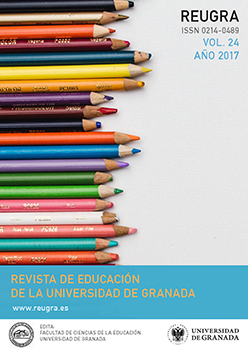La bitácora de registro: un instrumento para recabar información cualitativa
Contenido principal del artículo
Resumen
El presente artículo describe una parte de la intervención educativa que se llevó a cabo durante la investigación realizada para obtener el grado de Maestría, modalidad en línea, en Estrategias de Aprendizaje, por parte de la Universidad Marista de Guadalajara. El objetivo general de dicha investigación era «determinar si los estudiantes de sexto grado involucrados en este estudio mejorarían su fluidez oral en la lengua inglesa como resultado de la práctica continua y sistemática de la pronunciación mediante el empleo de las tecnologías de la información y la comunicación». Presento el empleo de una bitácora de registro, con la cual se obtuvo información cualitativa sobre el proceso de aprendizaje de diez estudiantes de Inglés VI de la Escuela Nacional Preparatoria # 9 «Pedro de Alba». Se presentan dos tipos de bitácora de registro: una escrita y una auditiva, con las que los alumnos trabajaron durante catorce semanas. A partir de la información que las bitácoras proporcionaron, clasifico las problemáticas que enfrentaron los estudiantes al momento de estudiar de manera independiente, para poder solucionarlas de una manera adecuada. Por último, analizo los resultados para determinar si se alcanzó o no el objetivo de la intervención educativa, a partir de los estándares del Marco Común de Referencia Europeo para las Lenguas (MCER).



